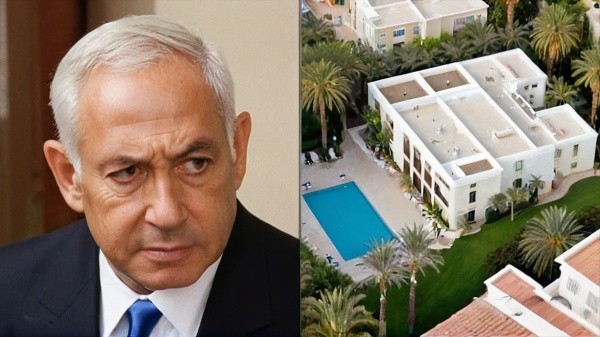Iran’s Plan to Strike Back Against the U.S.
Iran’s Military Preparations Following U.S. Attacks
Loading...

A reconnaissance drone belonging to the Lebanese resistance movement Hezbollah has infiltrated the northern part of the occupied territories, filming the private villa of the Israeli regime's prime minister, Benjamin Netanyahu.
Drone Incursion into Israeli Territory
A reconnaissance drone operated by the Lebanese militant group Hezbollah has reportedly infiltrated northern Israel, capturing footage of Prime Minister Benjamin Netanyahu's private residence in Caesarea. This incident, which occurred on August 18, 2024, has raised significant concerns within the Israeli military regarding the capabilities and intentions of Hezbollah. According to the Israeli newspaper *Israel Hayom*, the country's defense systems issued an alert about the drone's presence near Netanyahu's villa, located approximately 37 kilometers south of Haifa along the Mediterranean coast.
The drone is believed to have been launched from Lebanon, successfully evading detection as it filmed the prime minister's home. In response to the incursion, Israeli fighter jets were dispatched to the area; however, they were unable to locate the drone, leading to speculation about the effectiveness of Israel's air defense systems.
Military Response and Speculations
The Israeli military has suggested that the warning about the drone could have been a false alarm, indicating that such alerts can sometimes result from technical errors within the radar and defense systems. Nevertheless, they did not entirely dismiss the possibility that a small drone from Hezbollah had indeed crossed into Israeli airspace. This incident highlights the ongoing challenges faced by the Israeli military in countering Hezbollah's drone capabilities, which have been increasingly utilized in recent months.
In June, Hezbollah released a nine-minute video showcasing drone footage of various military and civilian sites in and around Haifa, including ports and airports. This footage was aimed at the Israeli audience and served as a demonstration of Hezbollah's growing military and intelligence capabilities. The release of such videos underscores the mounting difficulties Israel faces in monitoring and responding to drone activities along its northern border.
Escalating Tensions Amid Regional Conflicts
The drone incident occurs against a backdrop of heightened tensions between Israel and Hezbollah, particularly following the assassination of Hezbollah commander Fuad Shukr in Beirut on July 30. This assassination has intensified fears of a potential full-scale war between the two parties. Additionally, the situation is exacerbated by the recent assassination of Hamas leader Ismail Haniyeh in Tehran, which has prompted Iran to vow retaliation against Israel. Haniyeh was killed during a visit to Iran for the swearing-in ceremony of the newly-elected President Masoud Pezeshkian, raising alarms about a broader conflict involving multiple regional actors.
Ayatollah Khamenei has warned Israel of a "harsh response" for Haniyeh's assassination, framing it as a duty of the Islamic Republic to avenge the blood of the Palestinian resistance leader. This rhetoric has contributed to an atmosphere of fear and uncertainty among Israelis, who are increasingly concerned about the potential for retaliatory strikes from Hezbollah and its allies.
Conclusion
The infiltration of a Hezbollah drone into Israeli airspace, particularly one that filmed the private residence of Prime Minister Netanyahu, marks a significant escalation in the ongoing conflict between Israel and Hezbollah. As both sides prepare for potential military confrontations, the situation remains volatile, with the possibility of broader regional implications. The Israeli military's challenges in countering drone threats, coupled with the recent assassinations of key figures, suggest that the conflict may intensify in the coming weeks, leaving both nations on edge.
Editor
Iran’s Military Preparations Following U.S. Attacks
Troops remain in five strategic locations, raising fears of renewed tensions and long-term occupation.
Opposition forces have taken control of the capital after a significant offensive. Here is how it unravelled.
